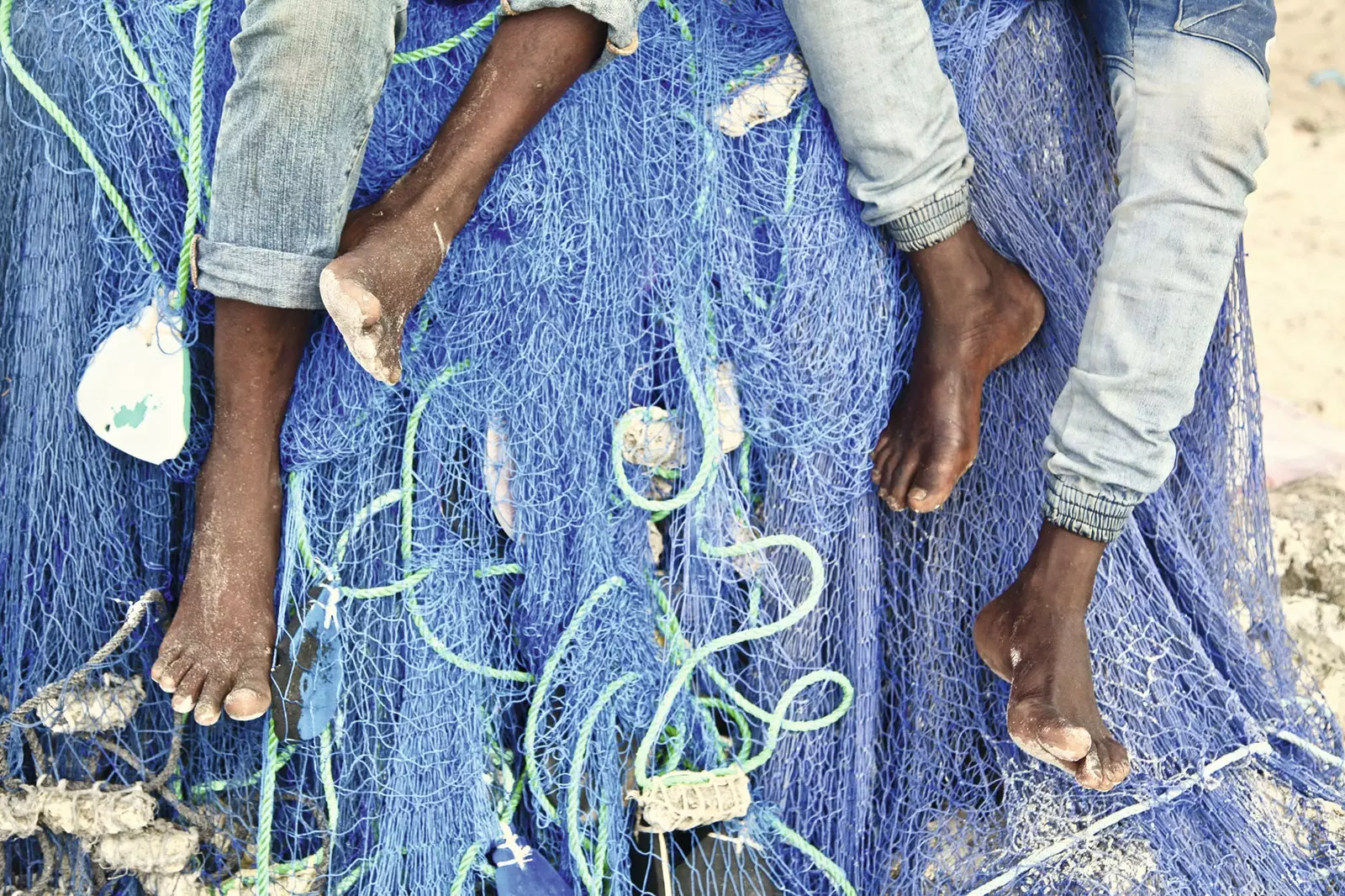
Two young men rest on fishermen's nets
The clock on the chipped wooden tower of the House of Wonders mark 07.15 hours. through the alleys of the old City appear kids with backpacks walking to the madrasa. A woman with a couple of chickens alive caught by her legs, as if they were a bouquet of flowers, she returns from the market.
At the bottom of an alley, a squatting man paints pictures of naïve style giraffes and elephants that will end up in tourist shops. In the square Jaw's Corner , three men in the traditional kufi play bao leaning against the jaws of the spielberg white shark painted on the wall that gives its name to the square.
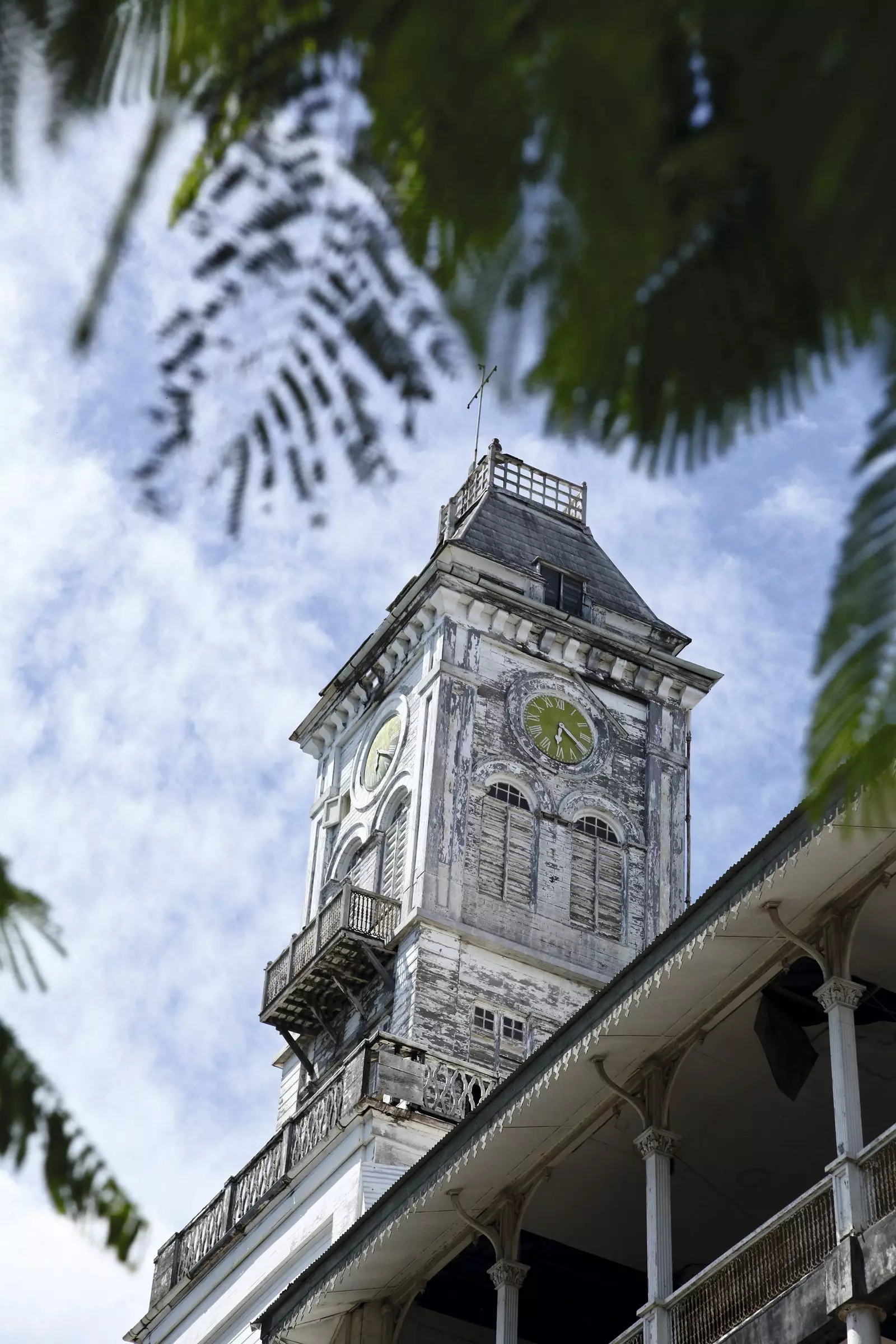
Clock tower of the House of Wonders
In Stone Town , the capital of Zanzibar , the normal is find a surprise around every corner and behind every door. Sometimes the surprise is that there is nothing on the other side. Old wooden gates carved with passages from the Koran and covered with metal spikes to prevent charging by elephants protect a vacant lot where a palace once stood.
The doors are the emblem of Zanzibar and give us clues to a past in which Arabs, Indians, Portuguese, British and Africans they left their mark, more or less deep, over the centuries. They tell us about when, under the sultanate Of Oman, the island became main commercial center of East Africa, the port from where ships loaded with ivory, spices and slaves sailed. Coral stone buildings with wooden balustrades that witnessed those '15 minutes' of glory.
When the sun goes down and twilight surprises you walking in the labyrinth of narrow streets of the center, almost in the dark, it's hard to believe that here public lighting arrived before London.
It is precisely that gloom that accompanies the call to prayer in the afternoon that now transports us to another time and to other places, in a muslim medina which might as well belong to Cairo or Marrakesh were it not for the the joy and color of black Africa permeates every corner.
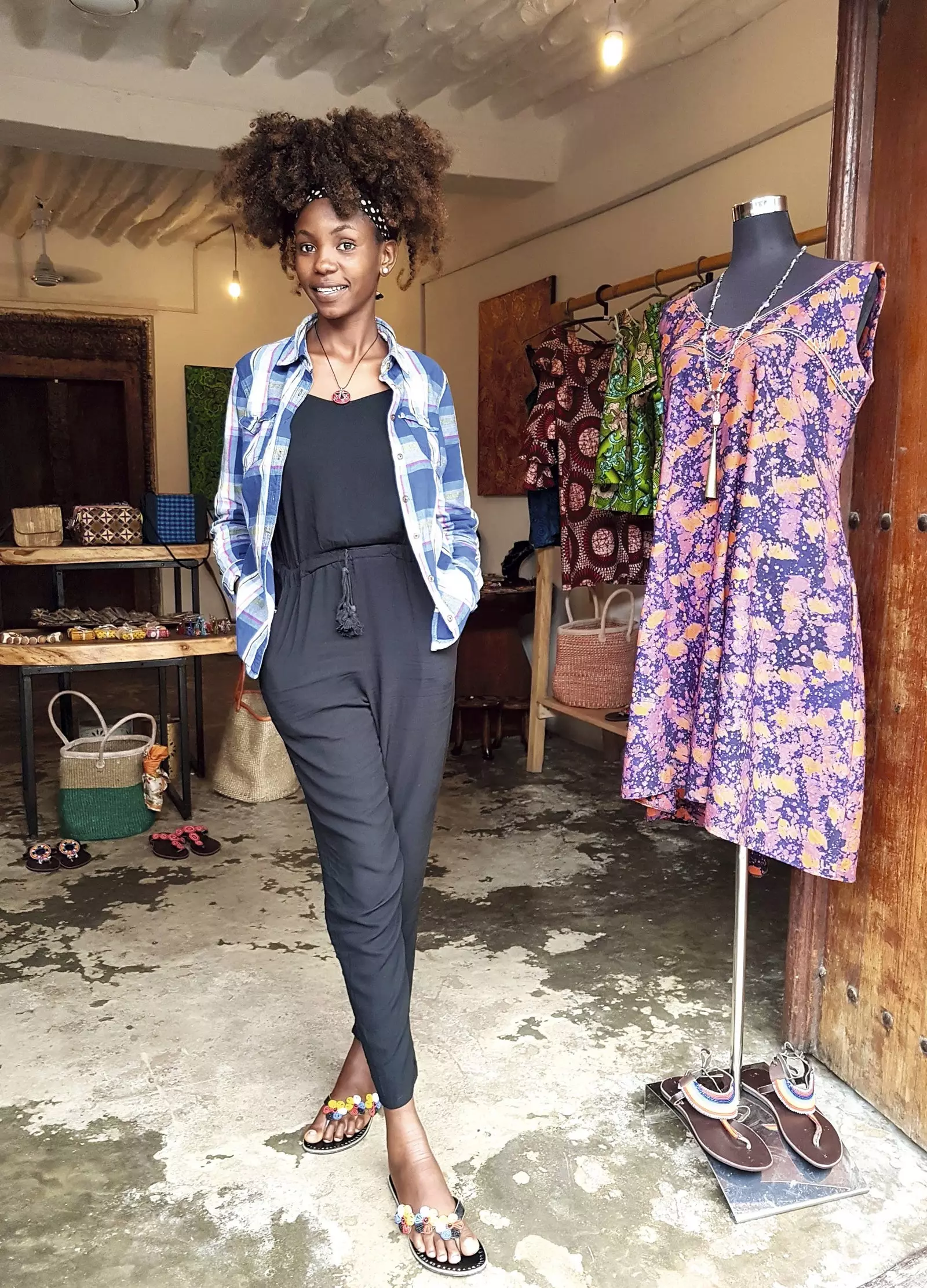
New designers in Njija, in Stone Town
It is this more relaxed version of Islam that has allowed the city shake off the cobwebs and be renewed by the hand of the young of the island.
in the boutiques of Njija and Zivansh , on Gizenga Street, fashion and objects from local creators they are light years away from the hackneyed 'out of Africa' of other souvenir shops. the evocative Mrembo Spa , like an episode of the thousand and one nights with its dim light and its aroma of vanilla, invites you to try massages, treatments with natural cosmetics and even to dare with the typical henna tattoos of the island. Another smell, that of freshly brewed coffee escapes from Café Africa, a hipster place where fashion meets gourmet.
Fortunately, this breath of fresh air coexists with the old places, as the photography studio ** Capital Art Studio .** Its owner, Rohit Oz a, he sneers at tourists who try to take pictures of his shop. Get into it with the walls papered with old photos, is to immerse yourself in a black and white album.
His father, Ranchid T. Oza, he opened the studio in 1930 and was the chronicler of the life of the sultanate first and the photographer of the revolution later. Today Rohit, longing for that illustrious past, resigns himself to more mundane assignments like weddings and birthdays. His gesture reveals a nostalgia that seems to permeate the entire city.
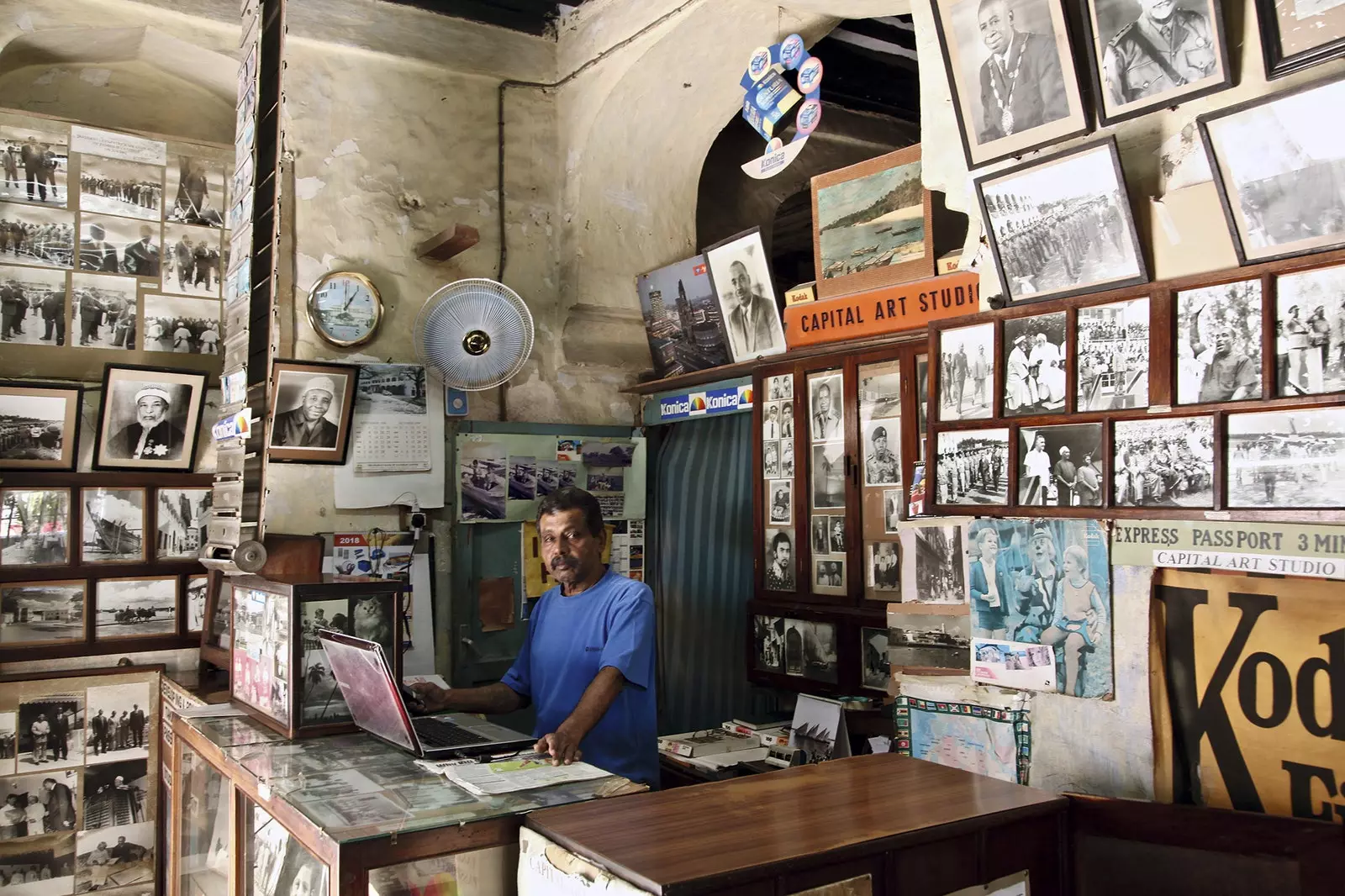
Rohit Oza, the owner of the Capital Art Studio photo studio
It also breathes in the hotel emerson spice , an old spice store with ebony balconies and stained glass windows, when from its watchtower the sea is contemplated furrowed by dhows with sails in the wind.
But nostalgia has a cure and the emblematic Mambo Msiige, former noble residence during the sultanate and in ruins until recently, it has been shaken out with a stroke of the pen by being transformed into a brand new Park Hyatt hotel. Its infinity pool on a huge terrace elevated above the beach is a luxurious vantage point from which to observe the life of Stone Town.
THE ISLAND OF FESTIVALS
Music lives in Stone Town. Taarab music, with Arabic and Indian melodies pressed with lutes or to the rhythm of an African drum. It also does, or so the tourists believe, in the house where he was born Freddie Mercury, place of worship after the success of the movie Bohemian Rhapsody (Brian Singer, 2018).
But where he really hits the ground running is during the **Sauti za Busara festival** –next year, from February 17 to 20–, when Stone Town becomes a sounding board where see and listen to the best bands on the continent.
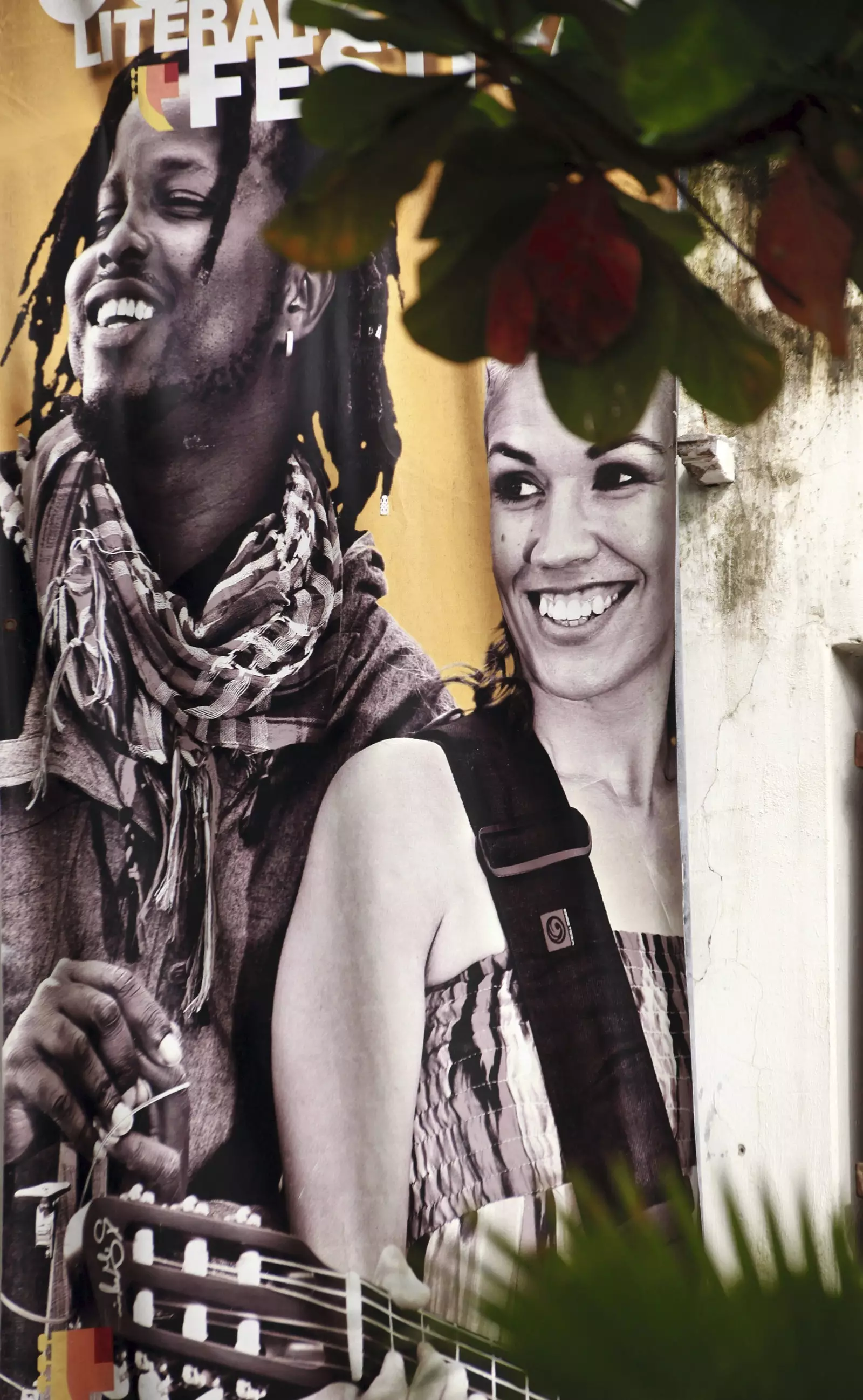
Jahazi festival poster at Livingstone cafe
Three days in which the city forgets its obligations to the prophet and surrenders to rap, soul, jazz and electronic music that make the rest of Africa vibrate.
It is then, and also during the Film Festival, the ZIFF (in July), and the Jahazi Literary & Jazz Festival (in August), when the old stone city opens its doors and windows and lets the air flow through its alleys. Summer nights that are filled with improvised jazz notes at the Livingstone Bar and literary evenings in which poets and writers tell stories and compete in poetry slam battles.
Although to enjoy a daily show in Stone Town you don't have to wait for the festivals. Every afternoon, in Forodhani park the curious who come to see the impossible pirouettes of daring young people jumping into the sea.
On the nearby beach, groups of more kids form human towers worthy of a circus show. Acrobatics, jumps, impressive displays of strength and balance that only cease when, at nightfall, the gas lanterns are lit and the barbecues of the dozens of food stalls that transform the park into a large open-air dining room.
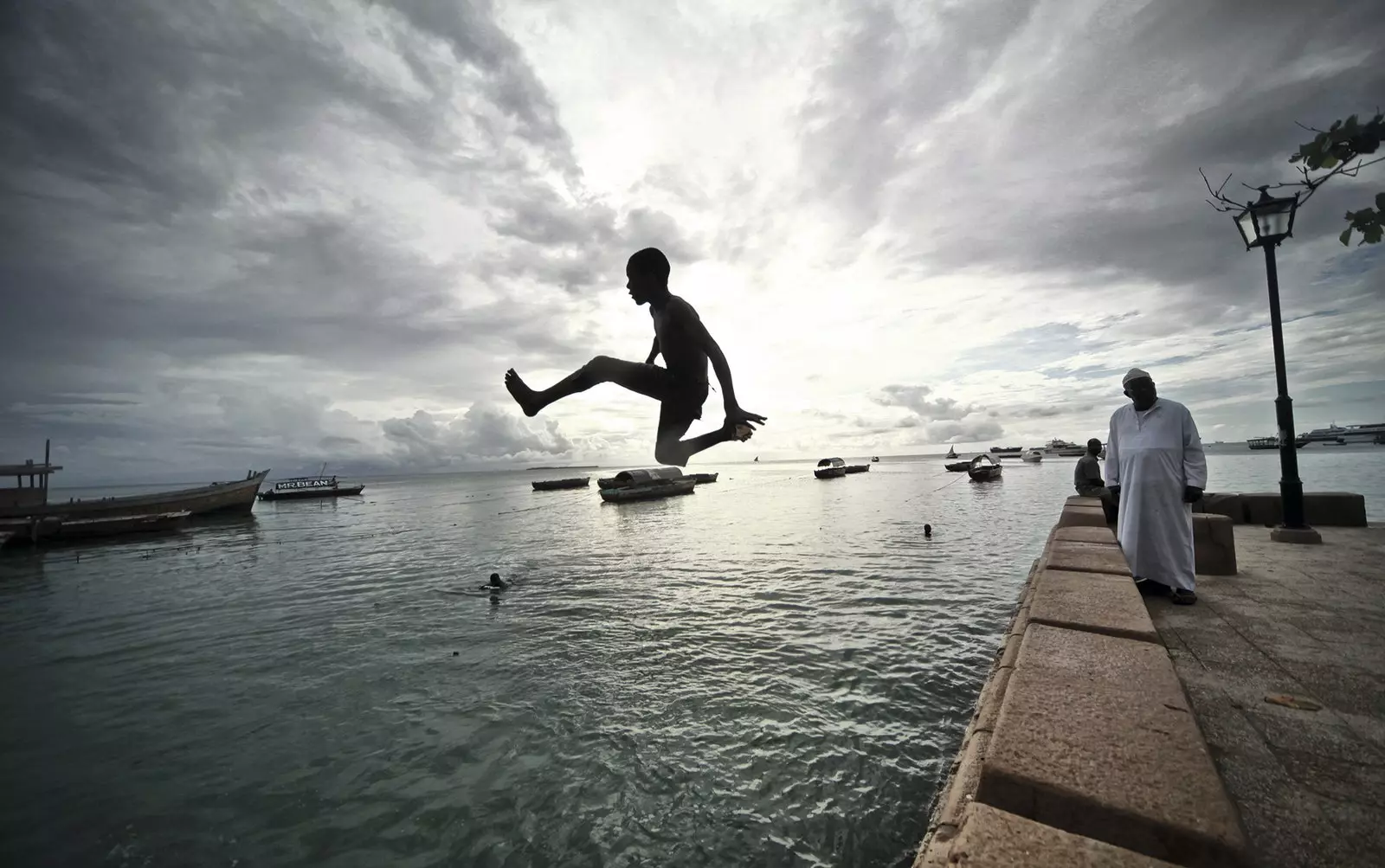
Stunts in Forodhani Park
TO THE SEA
Typical destination for honeymoon and rest after safaris in Ngorongoro and Serengeti, Zanzibar is so spectacular that it doesn't need sacraments or animals as an excuse. The stunning sunsets in Nungwi , in the north of the island, and its white sandy beaches they get narrower as you go down the east coast, along the barrier reef. At low tide, the water recedes, stripping reefs and forming coral lagoons.
In bwejuu Some of the best hotels, **from the Moorish opulence of the Baraza to the romantic Zawadi**, are located on top of a cliff.
A little further north, in the pingwe Beach, the mornings from the rooms of the Matlay they are turquoise Luxury is redefined at this hotel: hurdle ceilings, wooden beds from old ships and copper bathtubs.
When the tide recedes, it will take place the daily walk of women dressed in colored kangas fishing for octopuses armed with a hook and fresh bait. Despite being in a privileged enclave, the area has managed to remain almost as it was ten years ago.
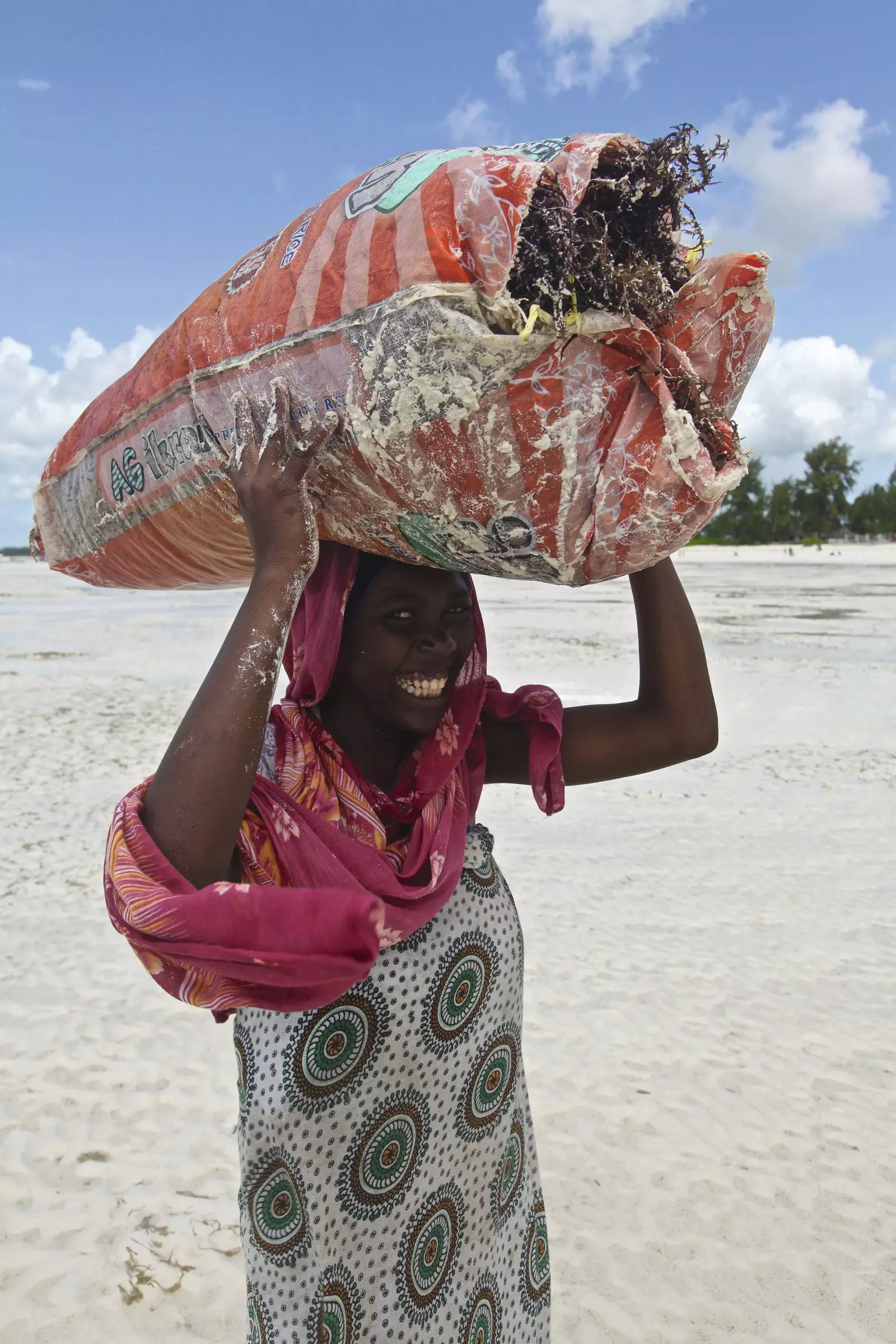
A woman carries a sack of algae to make cosmetics
The restaurant rock , on top of an islet that can be reached by boat (or on foot at low tide), is the background of all selfie. But a few meters away, in a fishing village with houses made of corrugated iron and cement, life remains the same. Nothing has changed either Blue Lagoon , where the fish share the seabed with red, yellow and green starfish.
From here arises another tangible richness: in the Paje beach there are algae farms, the island's second economic engine, after the spices. Groups of 'mamas' collect bouquets that, tied to sticks, grow under the span of water that covers the beach at low tide.
What started as a family activity today it employs 25,000 people, most of them women. Seaweed Center he is one of the pioneers. In their craft facilities, the algae are mixed with coconut oil, beeswax, spices and natural aromas and turned into organic cosmetics that will end up in foreign shops and luxury hotels on the island.
the newest is Zuri , on the Kendwa beach. It is decorated with recycled paper curtains and lamps made with bottles rescued from the sea. “It is no longer worth coming to a country to exploit its beauty without giving anything in return. Helping the community is key." David Fernández, the hotel manager, tells me. One of the projects they fund is **Chako**, the local company that transforms waste into those design objects.
Poetic justice: tourists pay for their waste turned into precious objects.
***** _This report was published in **number 133 of Condé Nast Traveler Magazine (November)**. Subscribe to the printed edition (11 printed issues and a digital version for €24.75, by calling 902 53 55 57 or from our website). The November issue of Condé Nast Traveler is available in its digital version to enjoy on your preferred device. _
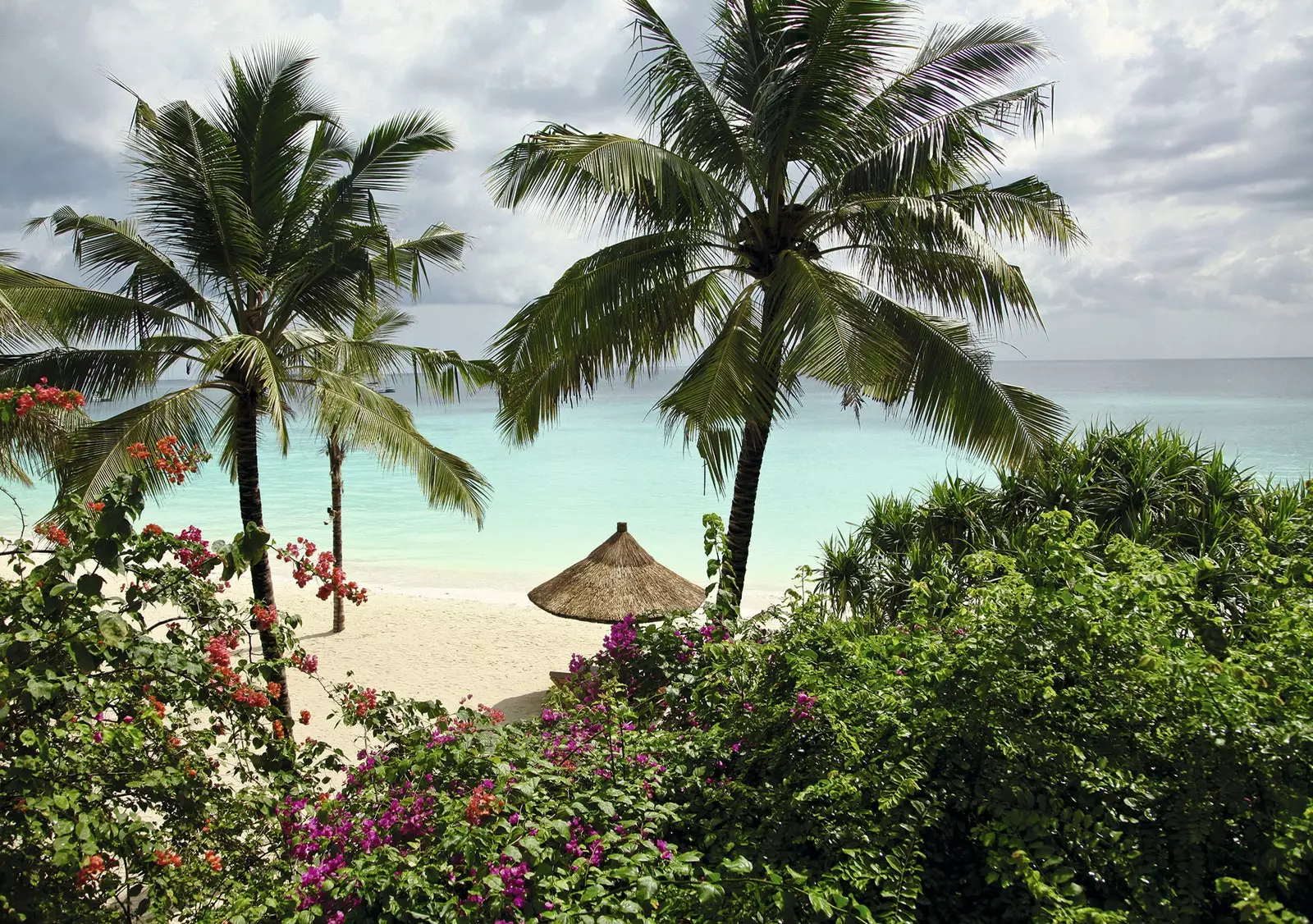
Kendwa Beach, next to the Zuri Hotel
